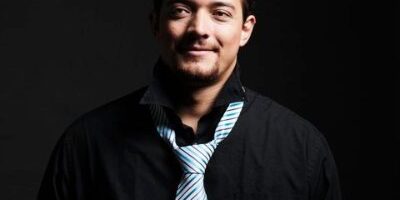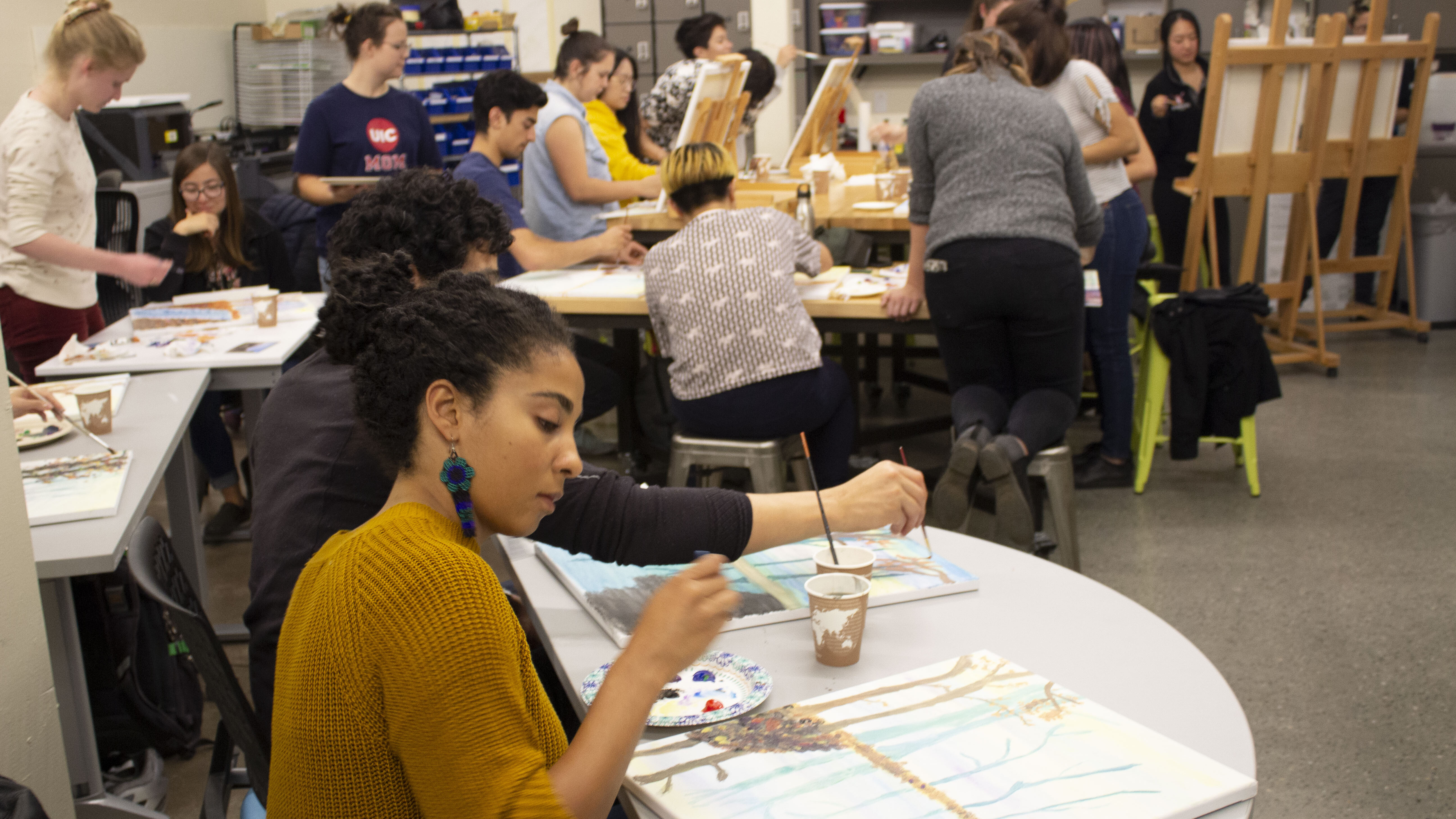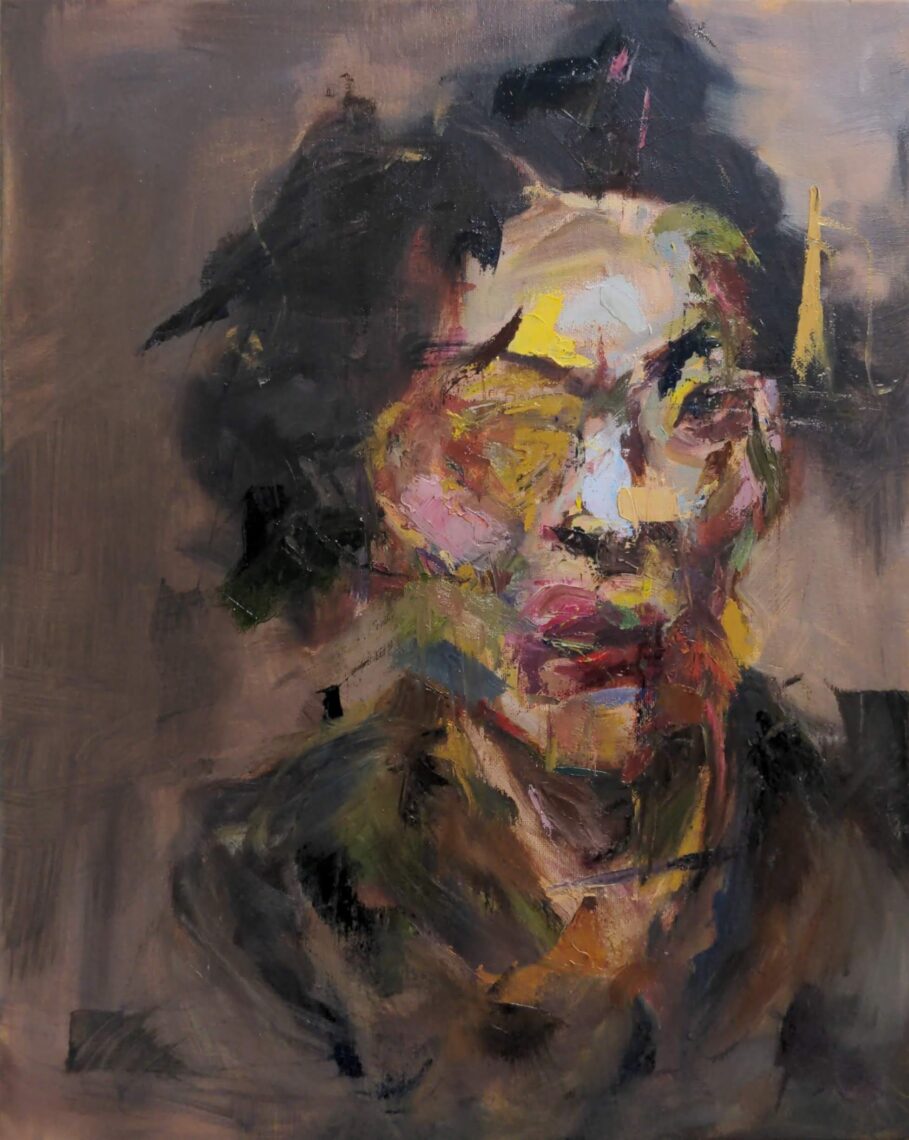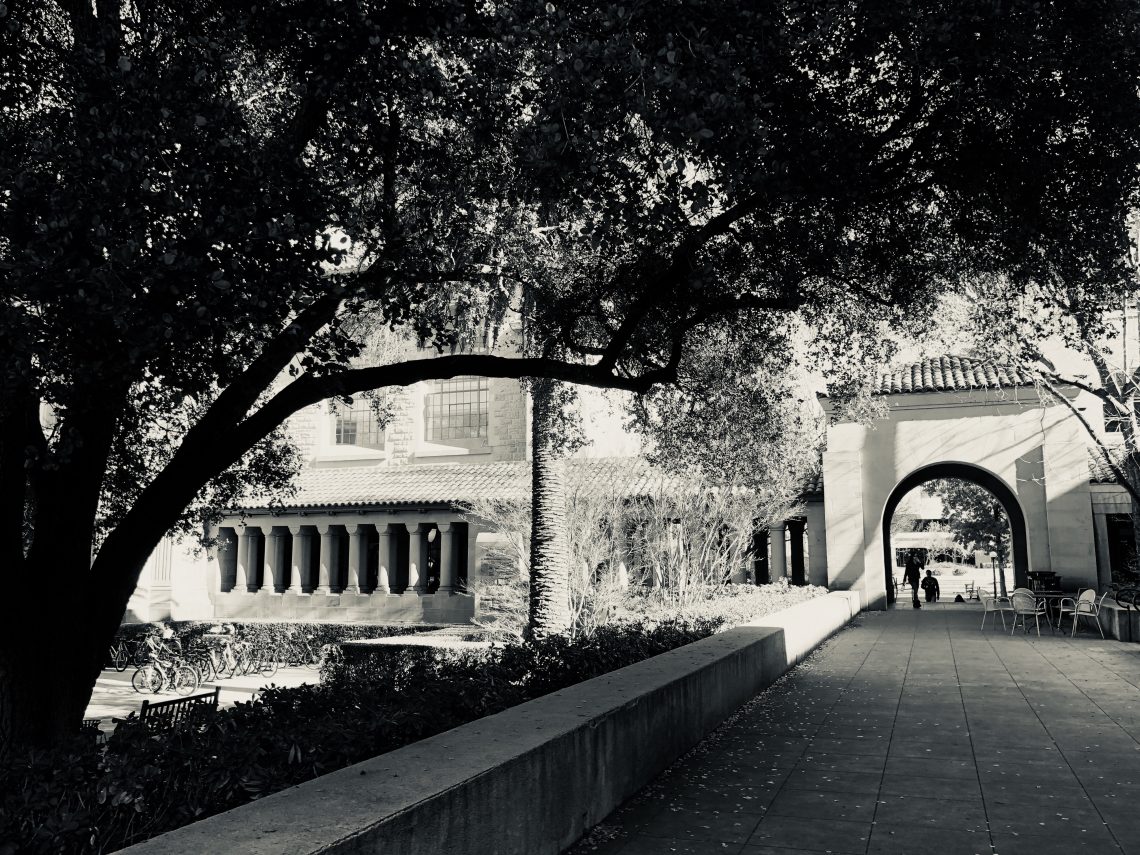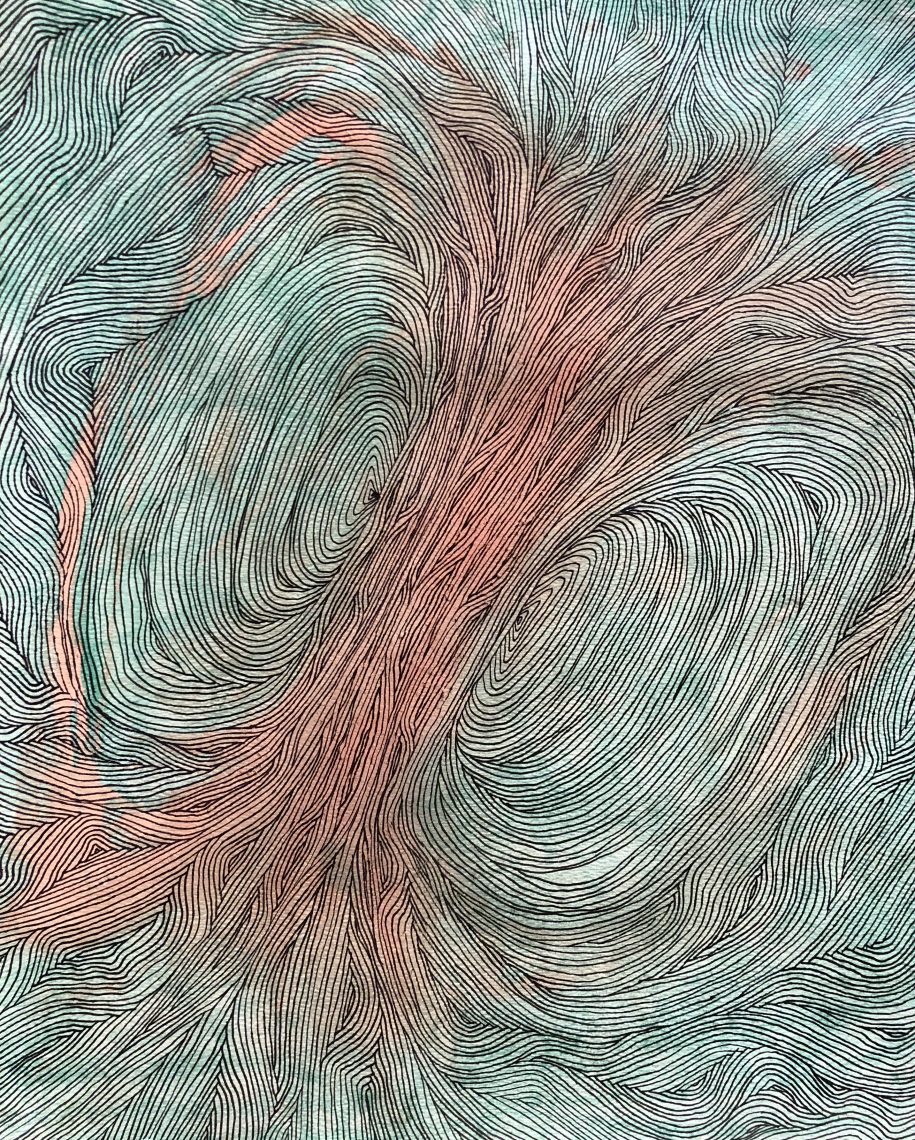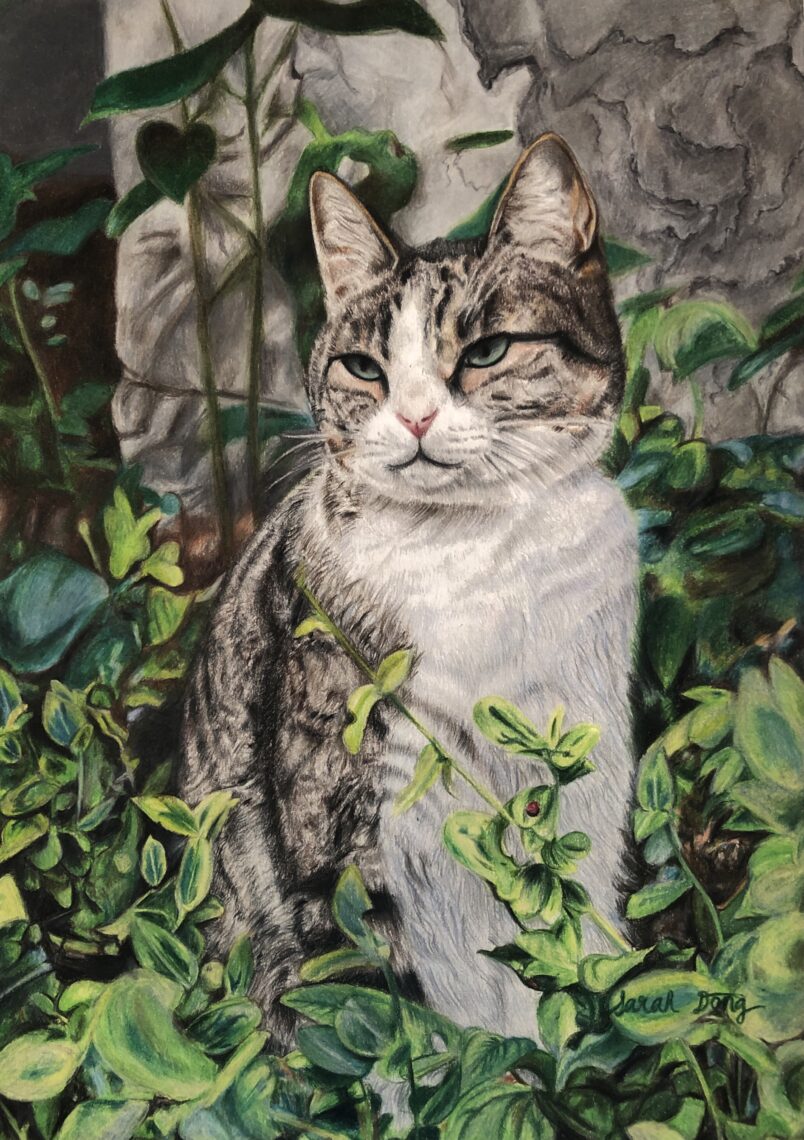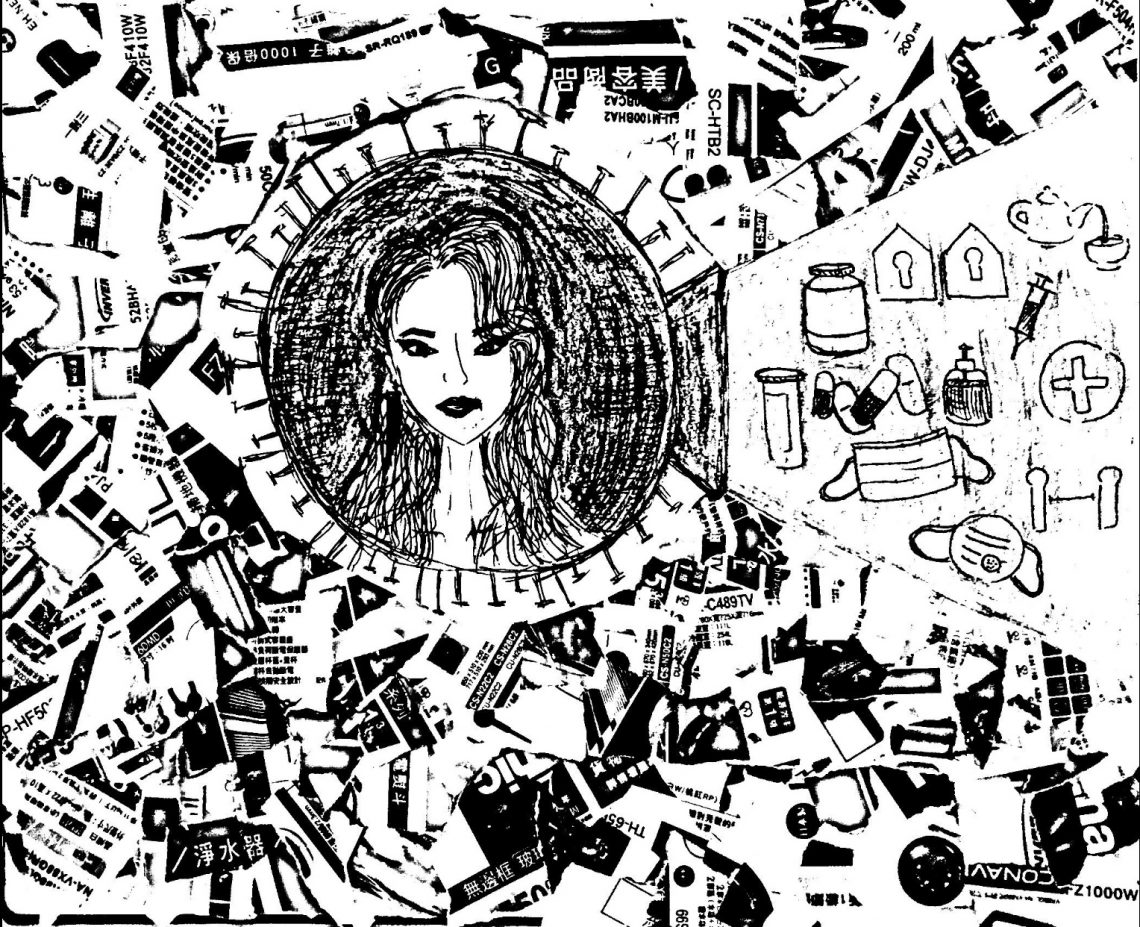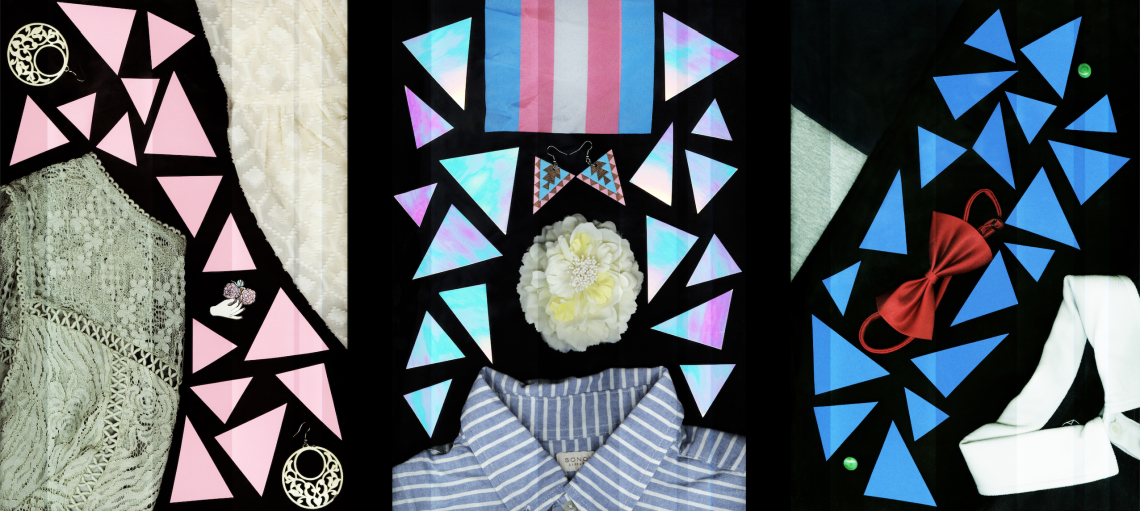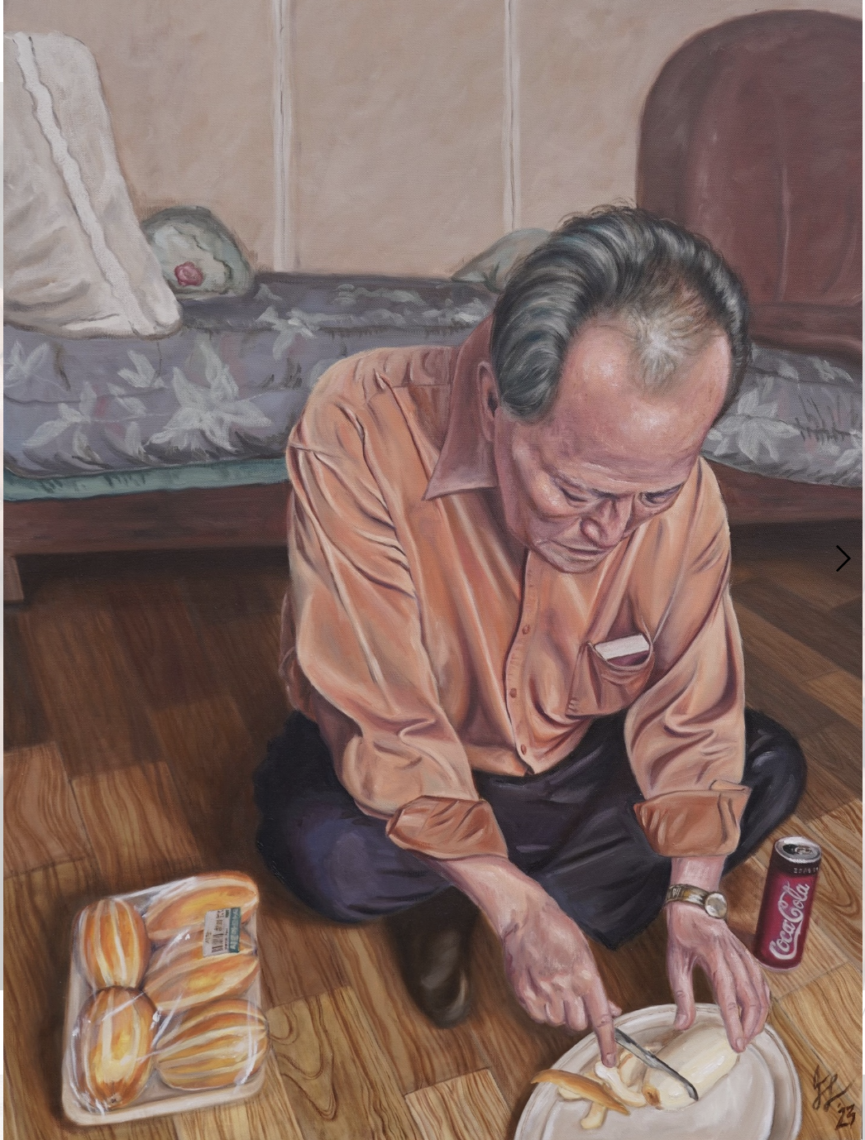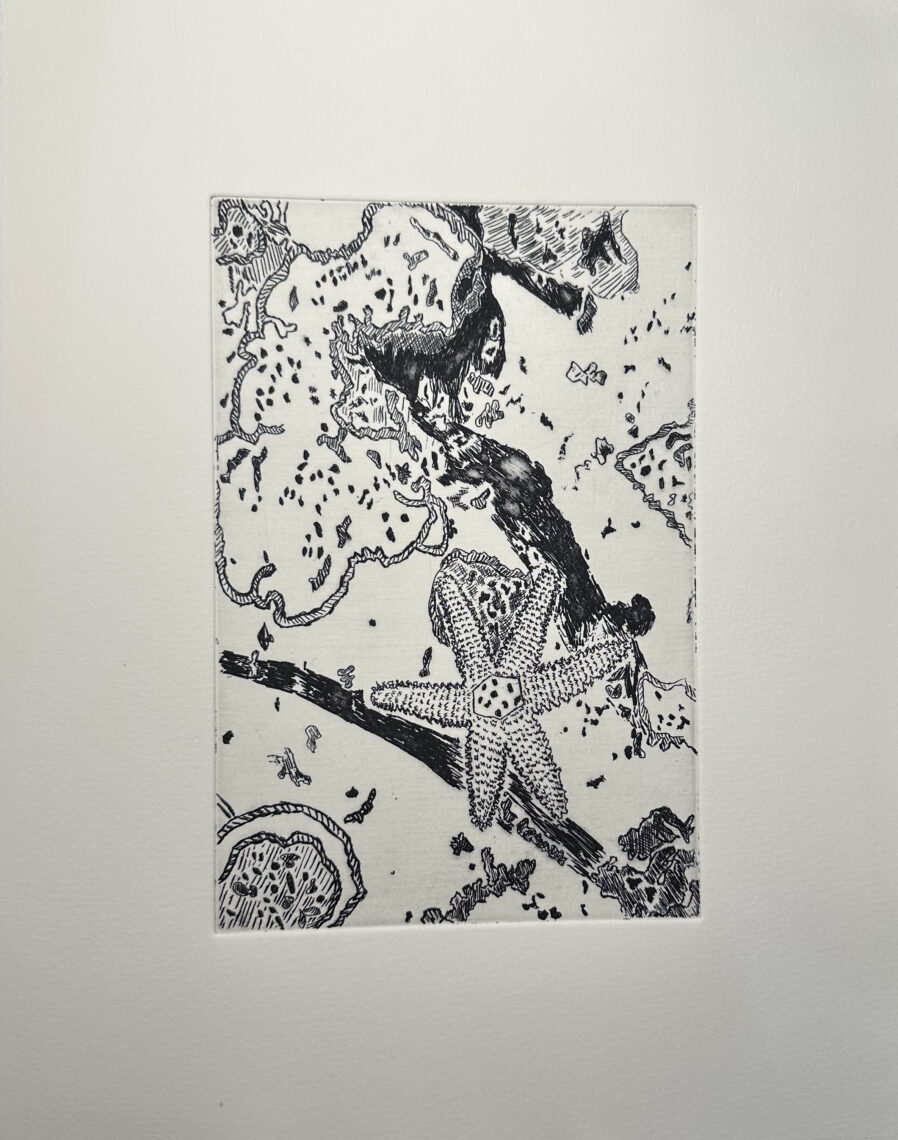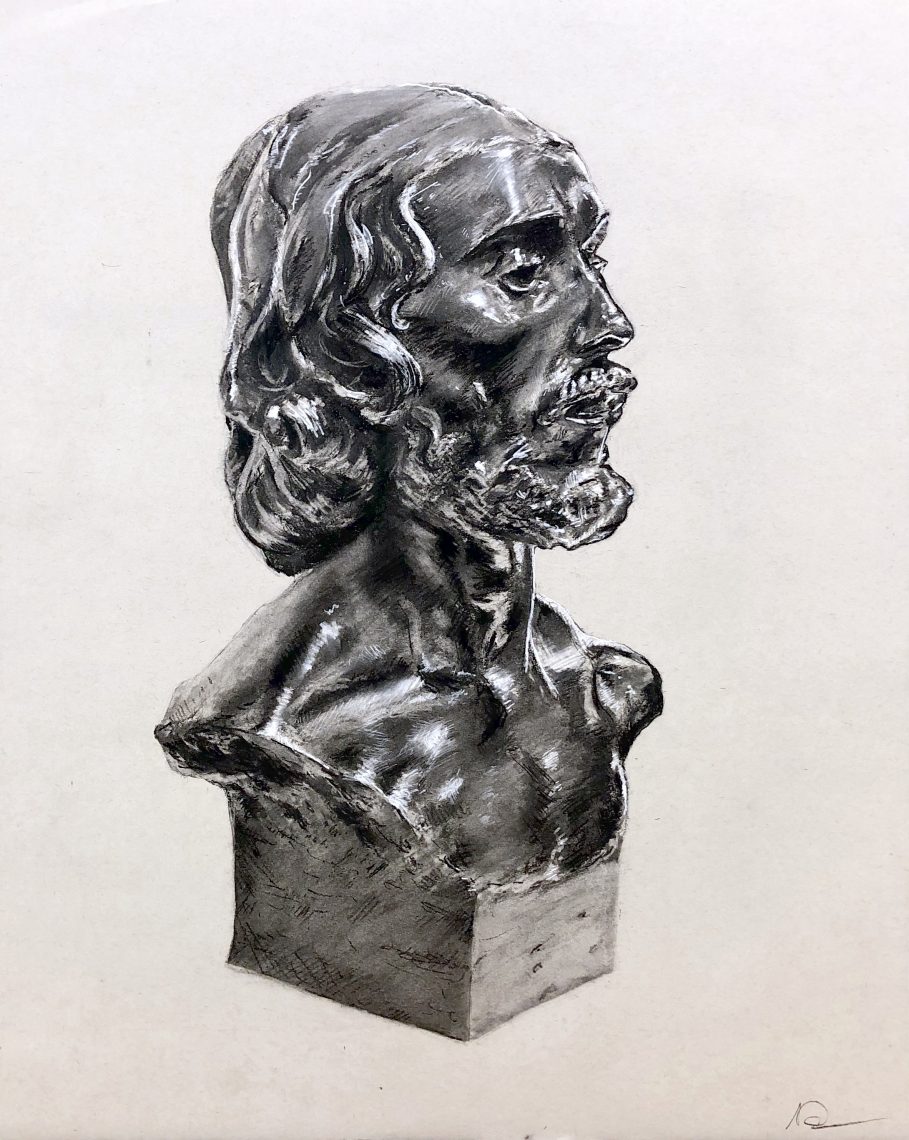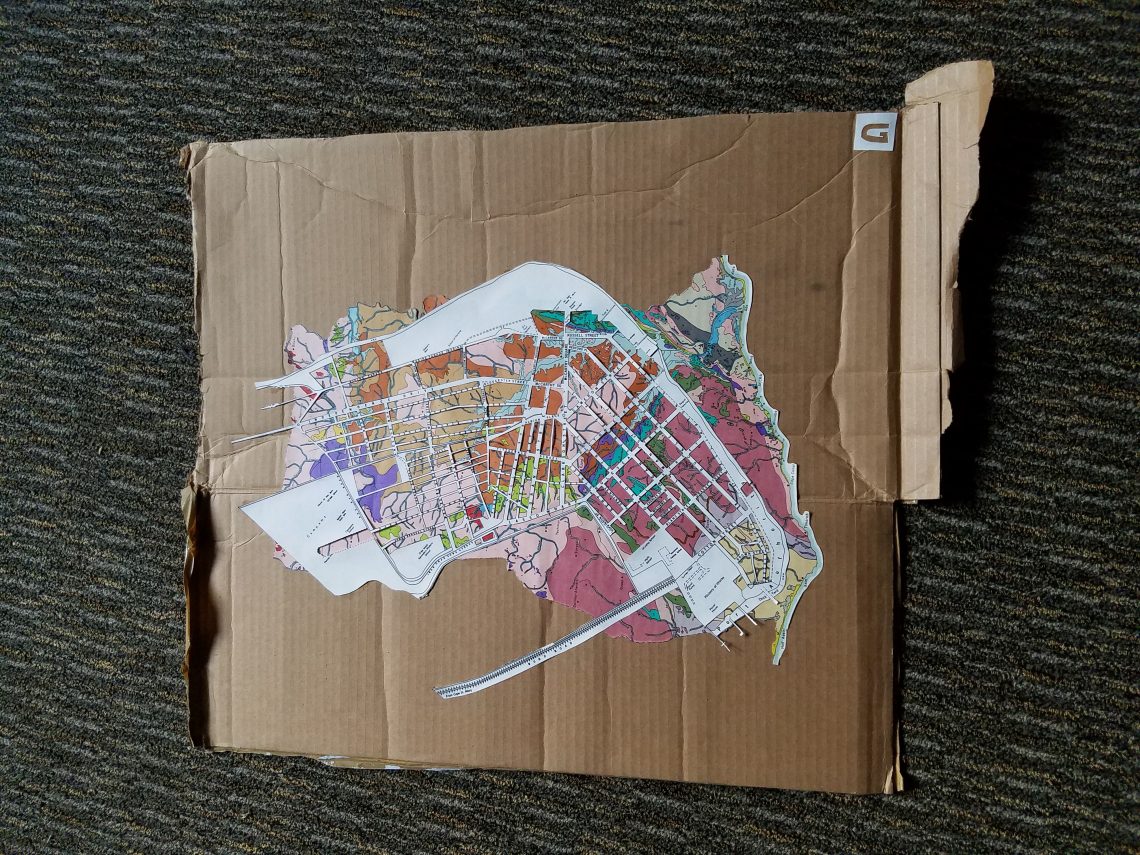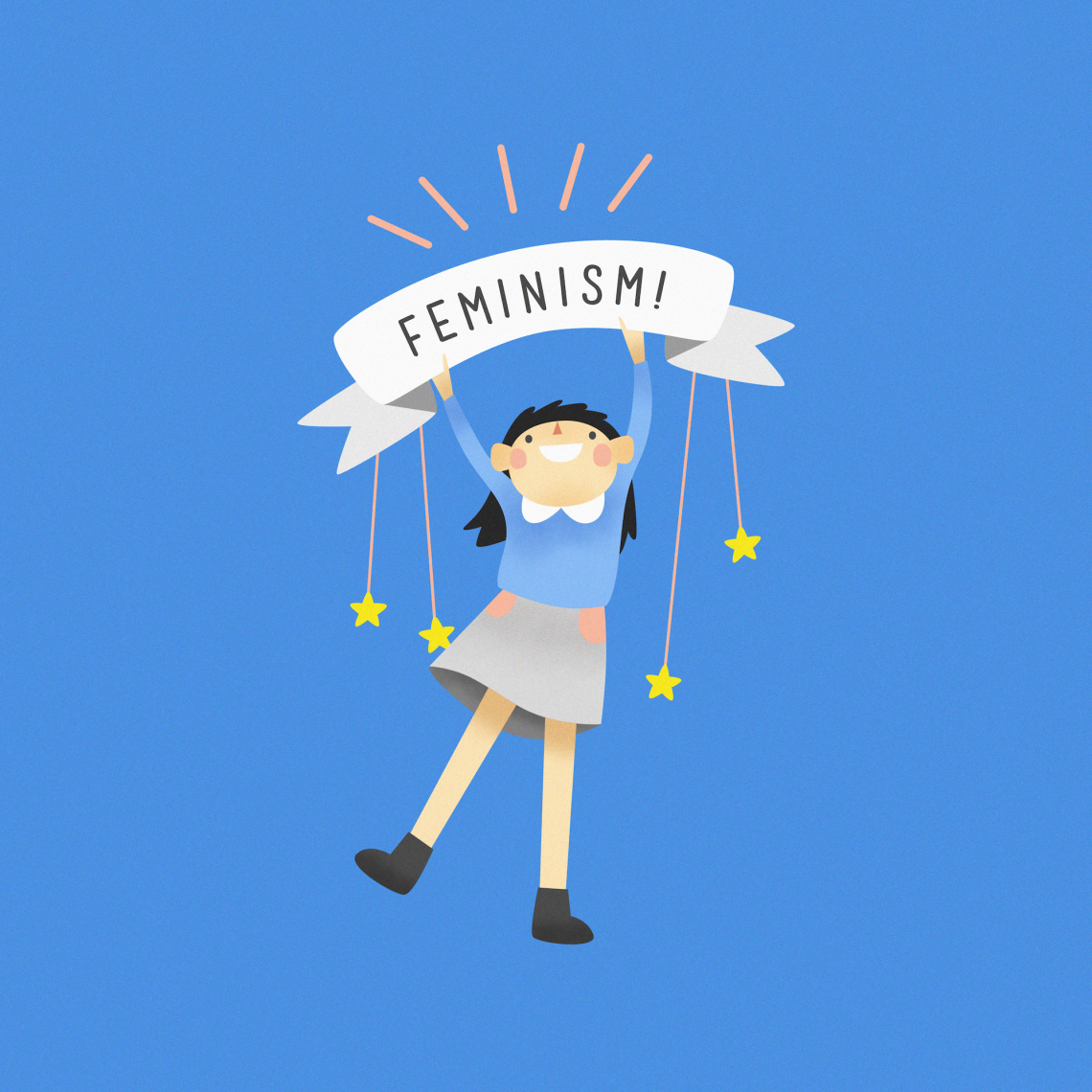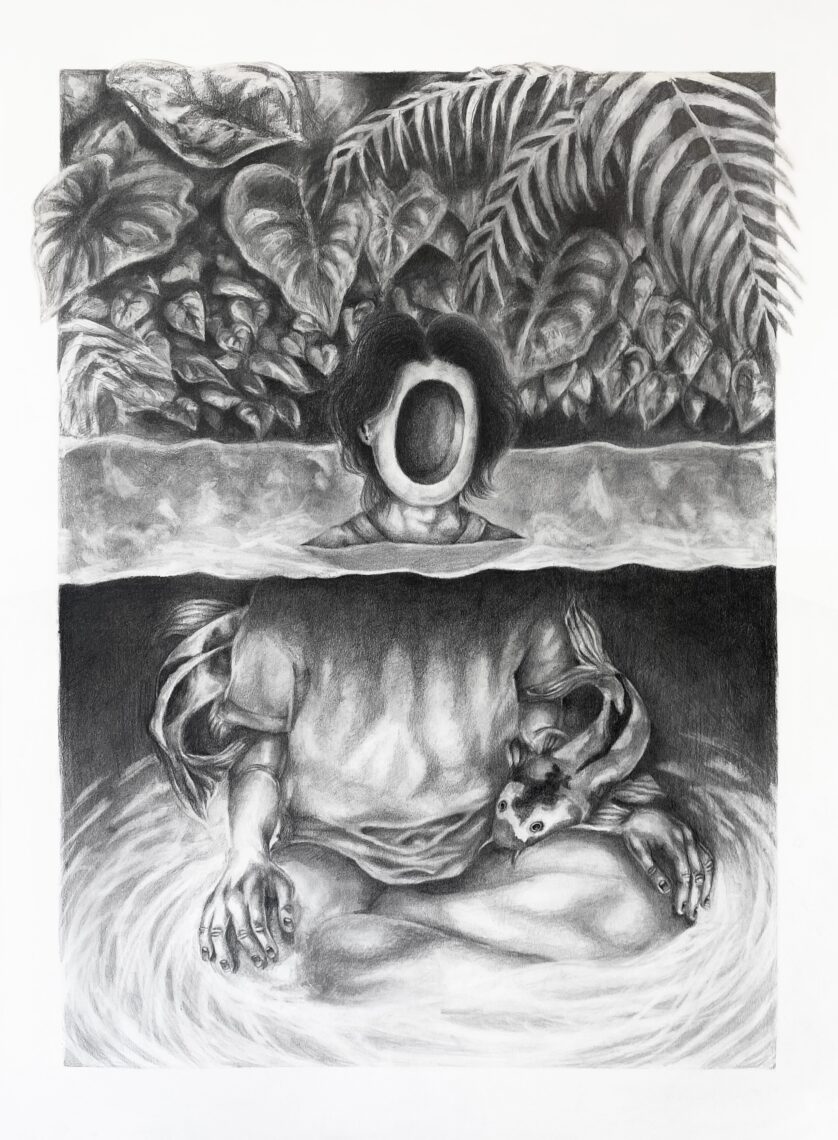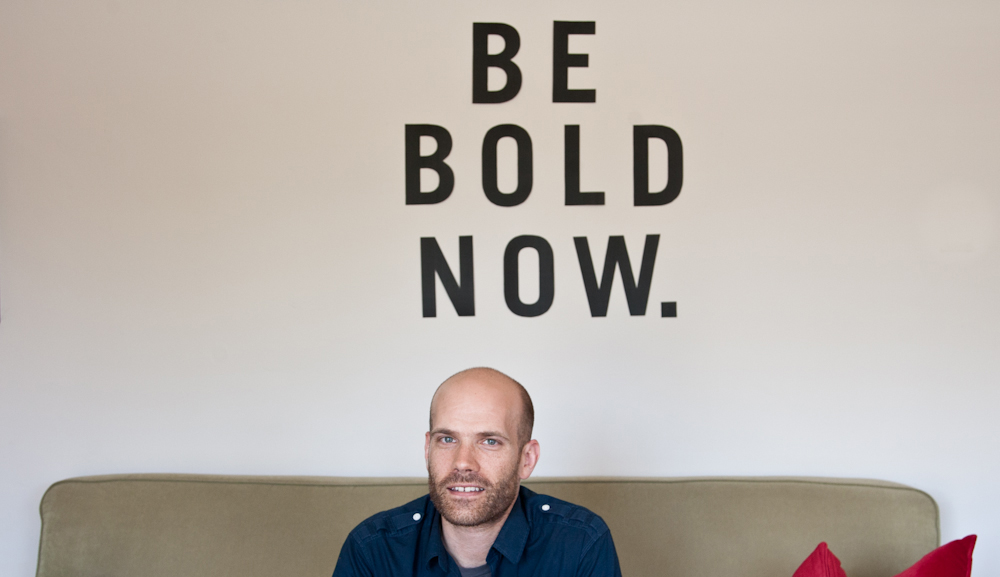
NaNoWriMo’s Creator, Chris Baty, Talks Shop
Chris Baty’s ebullient voice and San Franciscan diction convey an excited, restless passion, whether he’s discussing writing or the weather. An author, speaker, blogger, and freelance journalist, he’s perhaps best known as the founder of National Novel Writing Month (NaNoWriMo). He visited a Stanford course designed around NaNoWriMo, taking notes and listening attentively as students gave elevator pitches for their novels, and even going so far as to isolate some of the themes they shared: isolated groups, a fear of the future, and questioning parental identity. He spoke to the class about the beginnings of the one-month novel.
We’re gonna do this, we’re gonna do this quickly, and it’s gonna be bad.
At the cafes where the first group gathered in 1999, Chris said that, thanks to the novelty of a group of people with laptops in a coffee shop, “people thought we were playing Battleship.” There were just 21 participants that year. That number rose to 300,000 last year, and Chris credits NaNoWriMo’s success to its ability to unlock a childlike creativity in its participants. “You could have fun with two sticks and some dirt,” he said, before narrating a water bottle vs. cap fight to prove his point. That youthful imagination is eventually quashed by fear of failure, but can be recaptured in the process of writing with no inner editor and a good amount of coffee.
The Stanford Arts Review stuck around after class to talk shop with Chris.
Stanford Arts Review: What was your relationship to writing before NaNoWriMo?
Chris Baty: In 1999, I was working as an editor for a website for business travelers. This was the height of the dot-com boom, and this website was somehow the only uncool website in San Francisco. I was doing some freelance music reviewing, and knew I wanted to write more. The first NaNoWriMo took place in July of 1999, and I quit my full-time job in August of 1999 to give freelance writing a shot. In September, I went to Paris for three months on a writing assignment, and had a great next few years of travel, music, and arts-writing full-time.
SAR: Sounds awesome. What kind of music are you listening to now?
CB: I listen to a lot of singer-songwriters, indie rock, some hip-hop…when I’m doing my NaNoWriMo novel I listen to a lot of cheesy soundtracks [laughs]. I just went and saw this Scottish band Frightened Rabbit—that was a great show.
SAR: What does work look like these days?
CB: I stepped down as Executive Director of NaNoWriMo in January, but I’m still a board member emeritus with its parent non-profit, so I’m still involved with the organization, but not on a day-to-day level. Currently, I’m writing a questionable first draft about a monster who finds a VHS tape for NaNoWriMo, and also working on finishing a young adult novel that I did for NaNoWriMo in 2005, editing a couple screenplays I wrote with friends, and doing some freelance writing and speaking.
I found myself realizing that the thing separating people from their artistic dreams is not a lack of talent, it’s a lack of deadline and structure. When you finally get some of that useful encouragement combined with some pressure, you surprise yourself with that you can pull off.
SAR: And you’re loving it.
CB: Yeah! I miss so many things about being full-time with NaNoWriMo. The staff there is incredible, and I loved being at the heart of the month-long adventure. I saw people discovering a story in them that they didn’t realize was there, and you really get this incredible contact high from all that excitement. But now I get to take part in the escapade as a participant, and that’s pretty wonderful as well.
SAR: For sure. Speaking of feel-good stories, do you have any about particular NaNoWriMo participants?
CB: Gennifer Albin is a great one. She had two kids and she and her husband were going through really hard times financially. In the middle of all of it, her husband insisted that she write this book she’d been talking about for a long time. She didn’t have a computer at home, so she went to the public library and wrote her NaNoWriMo novel in these seventy minute blocks on the library’s computer. She ended up with something great, polished it, and shared it with an agent. The agent loved it, and within a few months had shopped and sold it. A six-figure, three-book deal went down with FSG, one of the country’s great publishers.
SAR: You hadn’t written fiction since the 8th grade when you started NaNoWriMo. What inspired you to tap your own creativity?
CB: Stories and novels seemed like completely magical objects growing up; you don’t understand how a novel does what it does, but you know it’s doing something extraordinary. I had always felt that as a reader, but never thought I could pull it off as a writer. I just thought Novels [air quotes] are written by novelists, and that’s just the way it is, and I’m not a novelist. I drank way too much Peet’s Coffee one day and got ambitious, sent out an email to friends and said, hey, why don’t we give this a shot? We’ll do it in a month.
Somehow that ended up lowering everyone’s expectations to the right level. If we’d gone after the Great American Novel, we would’ve failed in the first few days. We would have just been so frustrated by the quality of a first draft. Instead, we said, We’re gonna do this, we’re gonna do this quickly, and it’s gonna be bad. It gave us the gumption to dive in and see it through. The books started coming alive. We had some great plot twists and the characters did unexpected things. We discovered that novels aren’t written by novelists, they’re written by every day people like us who give themselves the time and permission to write novels. That discovery changed the way I saw myself, and everyone else around me.
I found myself realizing that the thing separating people from their artistic dreams is not a lack of talent, it’s a lack of deadline and structure. When you finally get some of that useful encouragement combined with some pressure, you surprise yourself with that you can pull off.
SAR: Do you have a handle on how many novels have been written, thanks to this idea?
CB: Last year we had 37,000 winners—those who completed 50,000 words in thirty days—in the adult program alone. At this point, maybe 100,000 50,000 word books written [laughs]. That’s a lot of words! Last year, NaNoWriMo participants wrote more than 3.1 billion words written, which is more than the entire English-language Wikipedia…Crazy.
SAR: Now you’ve moved from project manager to fiction writing. Are big ideas coming down the pipeline?
CB: I think my biggest goal at this point is really just to finish one of these danged novels and get it out into the world. That, and figure out what this monster is going to do with his VHS tape.

